Gender Doctors In Blue States Pulled Back On Prescribing Transition Medications to Minors in 2023
According to a new analysis of medical-claims data by Do No Harm, all but one of the 24 states where pediatric gender-transition treatment remains legal saw a downturn in such prescriptions in 2023.
Pediatric gender medicine is in a nationwide retreat.
Gender clinics pulled back on prescribing gender-transition treatments to minors in 2023 in all but one of the 24 states, plus Washington, DC, that have not passed bans on such medical interventions.
This is according to comprehensive data released on Tuesday by Do No Harm. As I reported that day, the nonprofit, which opposes the use of puberty blockers and cross-sex hormones to treat gender dysphoria in minors, conducted a comprehensive analysis of medical-claims data to assess trends in such prescriptions. They also assessed trends in gender-transition surgeries in minors.
Do No Harm released their findings, which cover 2019 to 2023, in a new website: DoesMyHospitalTransitionKids.com.
The estimates are conservative, suggesting that the true numbers of minors receiving these medical interventions are greater than the web site indicates. The data set excludes medical claims that were processed internally through Veterans Affairs, care paid for out of pocket, charity care, and care provided by Kaiser Permanente (which dominates in the West Coast in particular).
At Least 14,000 U.S. Minors Have Received Gender-Transition Treatment or Surgeries In 5 Years, With Docs Billing $120 million
Given that the limitations of the data were likely consistent over time, one thing they can make clear is year-by-year trends.
I examined all 24 states plus Washington, DC, that have not passed bans on pediatric gender-transition treatment (this includes two states, Arizona and New Hampshire, that have only banned surgeries). The remaining 26 states, which are dominated by Republicans, have banned both gender-transition treatment and surgeries.
Sources I’ve spoken to this week have theorized that the downturn in gender-transition treatments even in blue states could have been driven by several causes:
Doctors have become more cautious about prescribing such medications in the face of waves of bad publicity about the field—in the wake of the Cass Review out of Britain, the WPATH files, and unsealed internal WPATH emails that were subpoenaed by Alabama’s attorney general.
Parents have become more wary, due to all the revelations mentioned above, about consenting to such medications for their gender-distressed children.
A glut of children seeking such medications in the wake of the Covid-related shutdowns worked their way through the medical system by 2023.
Blue-State Trends Show a Broad, Sudden Retreat In Pediatric Gender Medicine
Puberty blockers and cross-sex hormones:
Only one state without any ban on pediatric gender medicine—Wisconsin—did not see the annual number of prescriptions for puberty blockers and cross-sex hormones decline in 2023 compared with the previous year or two.
Surgeries:
Surgery trends were more variable. Compared with the previous year or two, surgeries still rose in the following states in 2023. I listed them in order of the total number of minors in each state who received pediatric gender-transition treatment or surgeries between 2019 and 2023:
Oregon
Michigan
Massachusetts
Maryland
Virginia
Delaware
Vermont
Maine
Connecticut
Nevada
Kansas
Rhode Island
A Complete List of the States
Below are all the states where gender-transition treatment remains legal, listed in order of the total number of pediatric patients who received treatment or surgery between 2019 and 2023.
Some interesting findings:
Washington state and Oregon, while relatively small states, were number 3 and 4 the list. A little over one quarter of the patients in Washington (my own home state) were seen by Seattle Children’s, which has long been a magnet hospital for pediatric care across many states. However, it is unclear whether Seattle Children’s has been treating substantial numbers of out-of-state children with gender dysphoria.
Many states saw a surge of prescriptions for gender-transition treatment in 2022 followed by a distinct retreat the following year.
California:
New York:
Washington state:
Oregon:
Pennsylvania:
Michigan:
Massachusetts:
Illinois:
Minnesota:
Maryland:
Colorado:
Virginia:
Arizona (has a ban on surgery):
New Jersey:
Wisconsin:
Delaware:
New Mexico:
New Hampshire (has a ban on surgery):
Washington, DC:
Vermont:
Maine:
Connecticut:
Nevada:
Kansas:
Rhode Island:
I am an independent journalist, specializing in science and health care coverage. I contribute to The New York Times, The Guardian, NBC News and The New York Sun. I have also written for the Washington Post, The Atlantic and The Nation. Follow me on Twitter: @benryanwriter. Visit my website: benryan.net







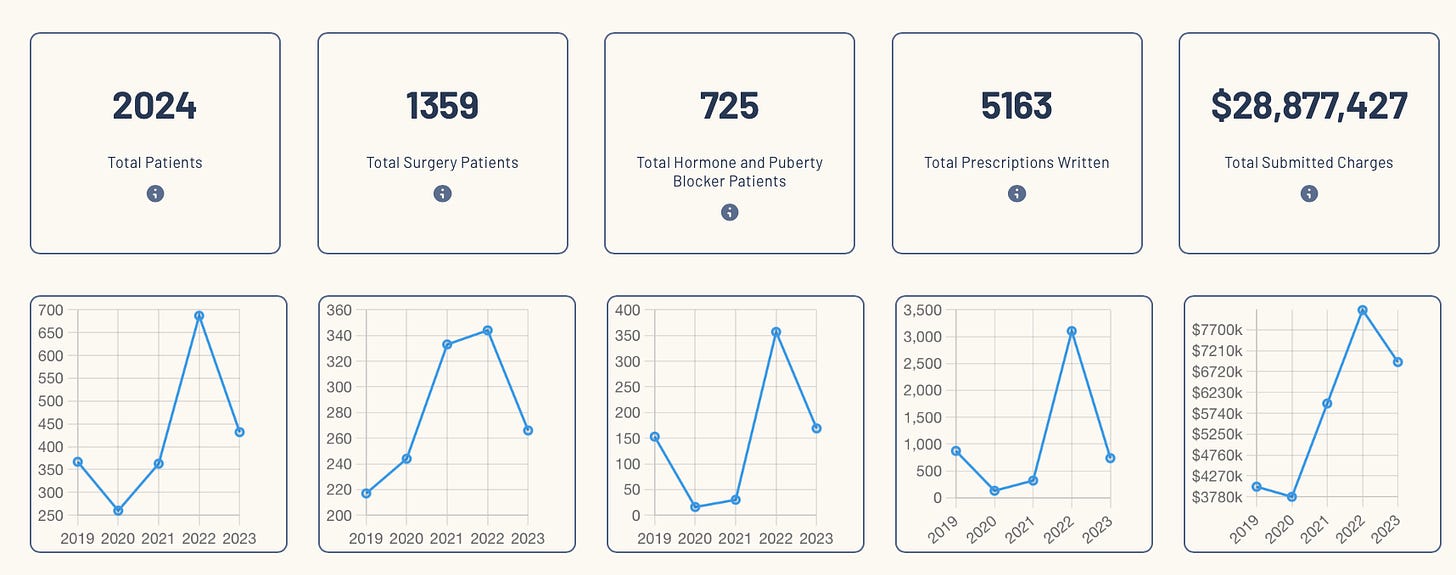
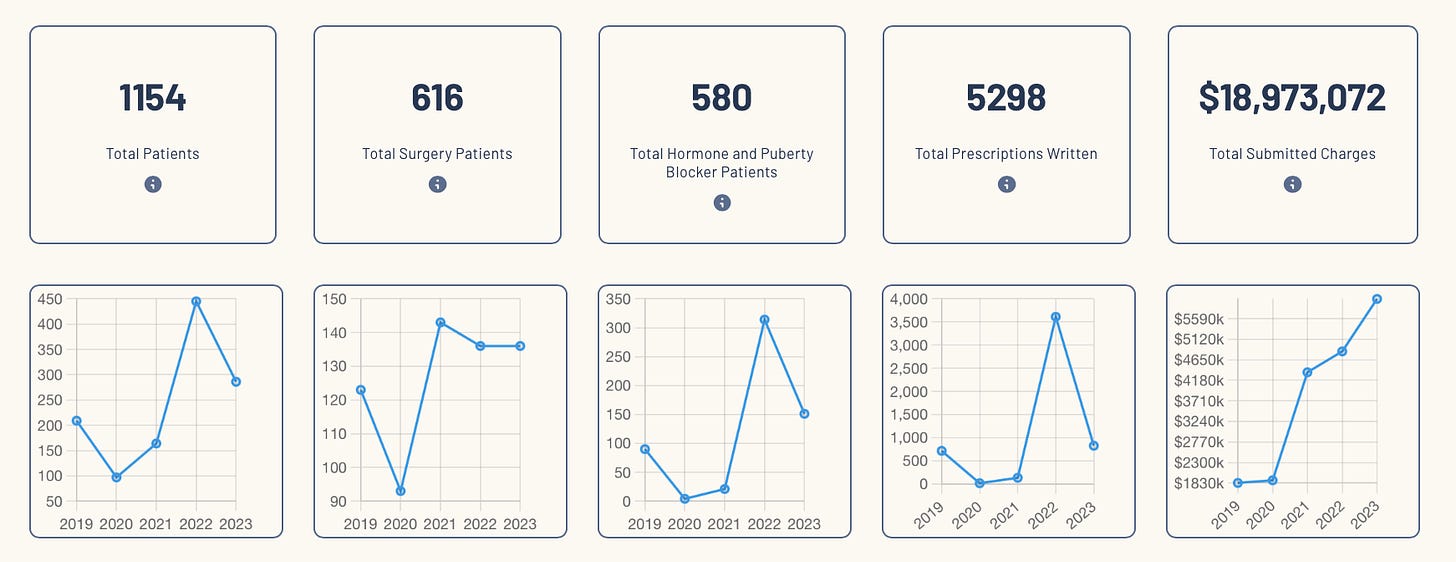
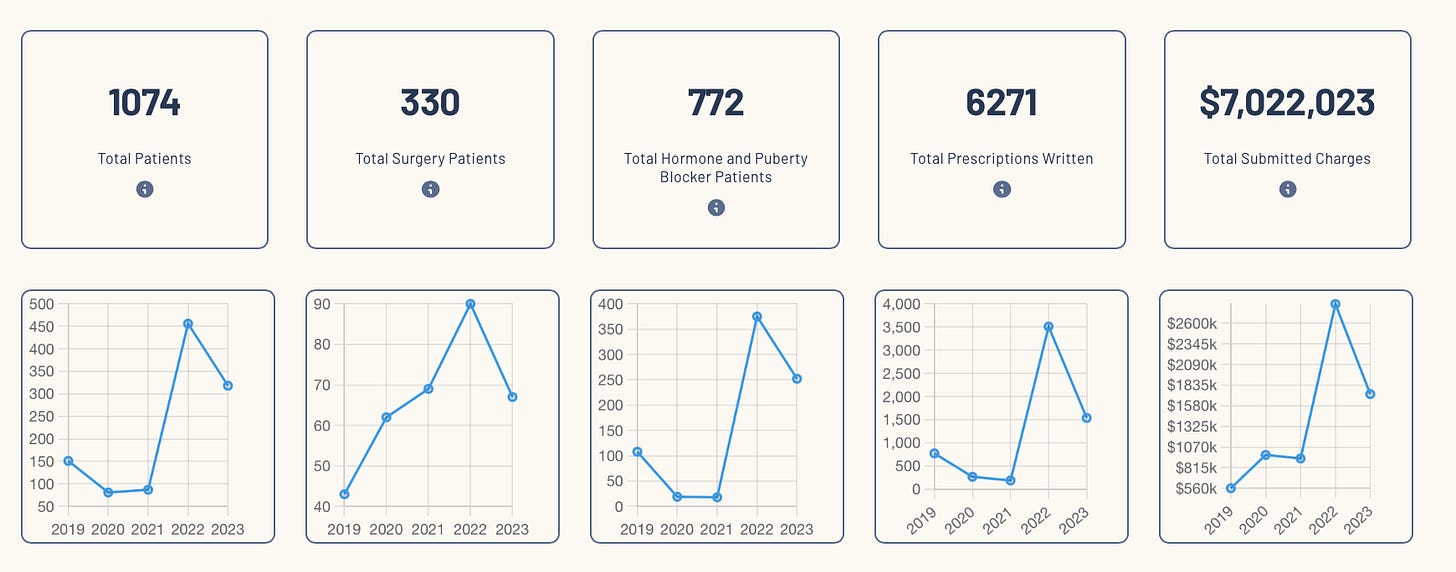
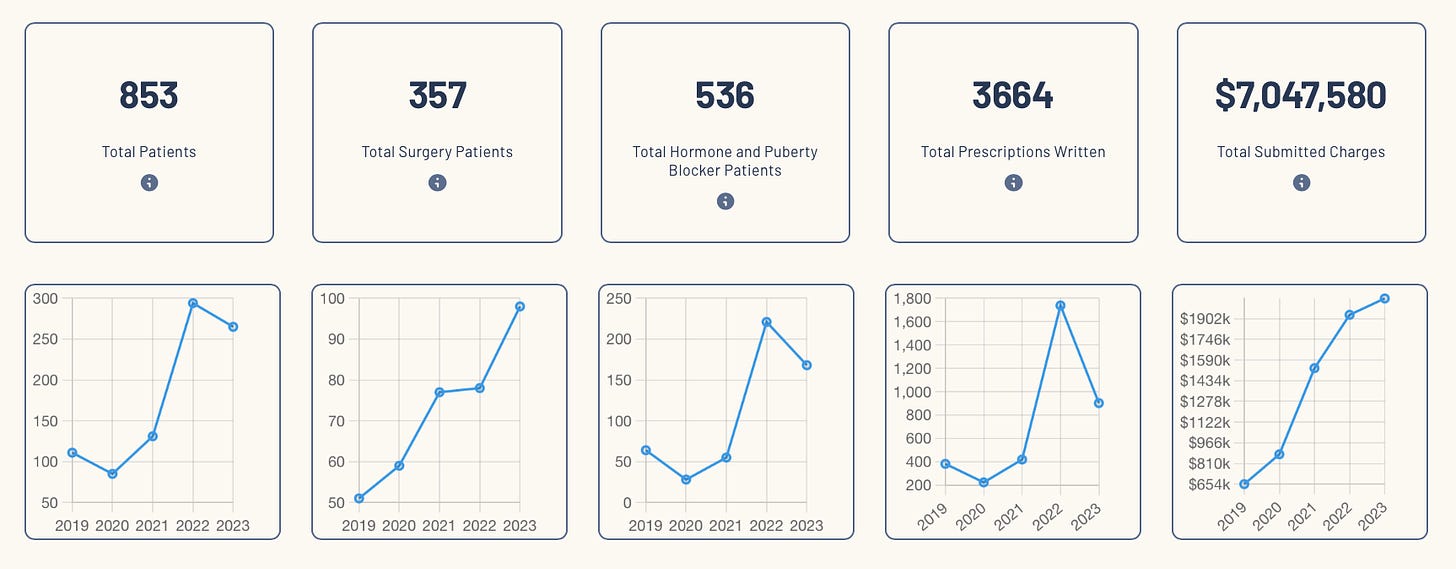
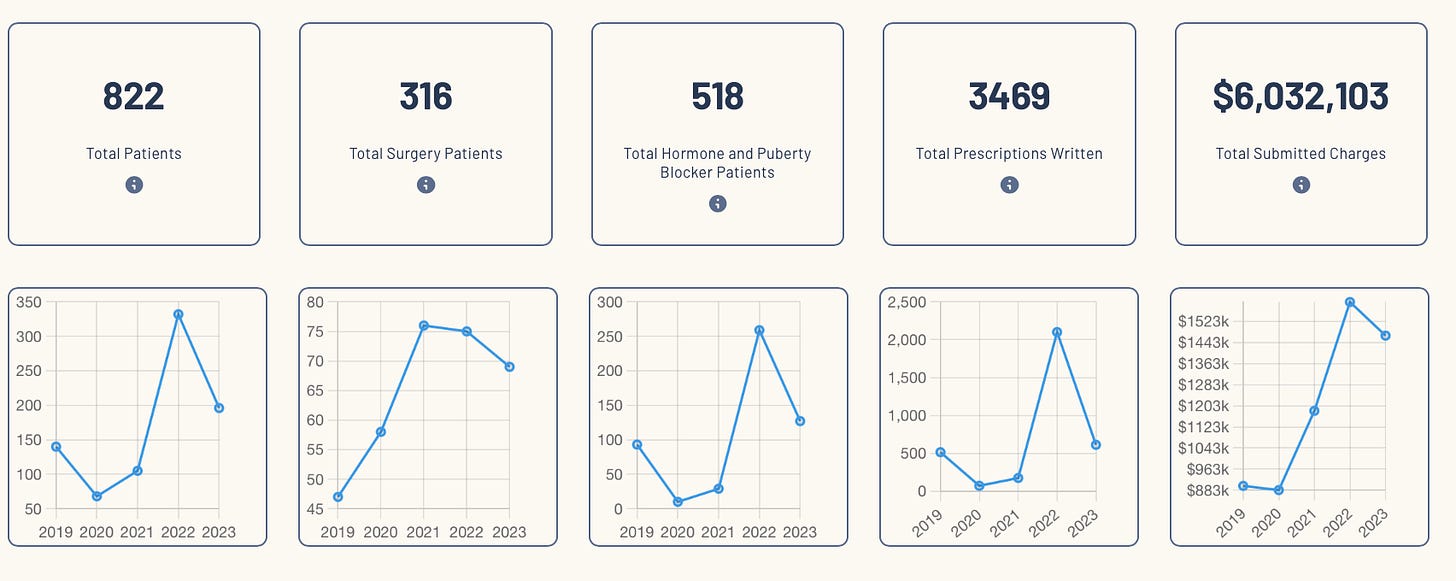
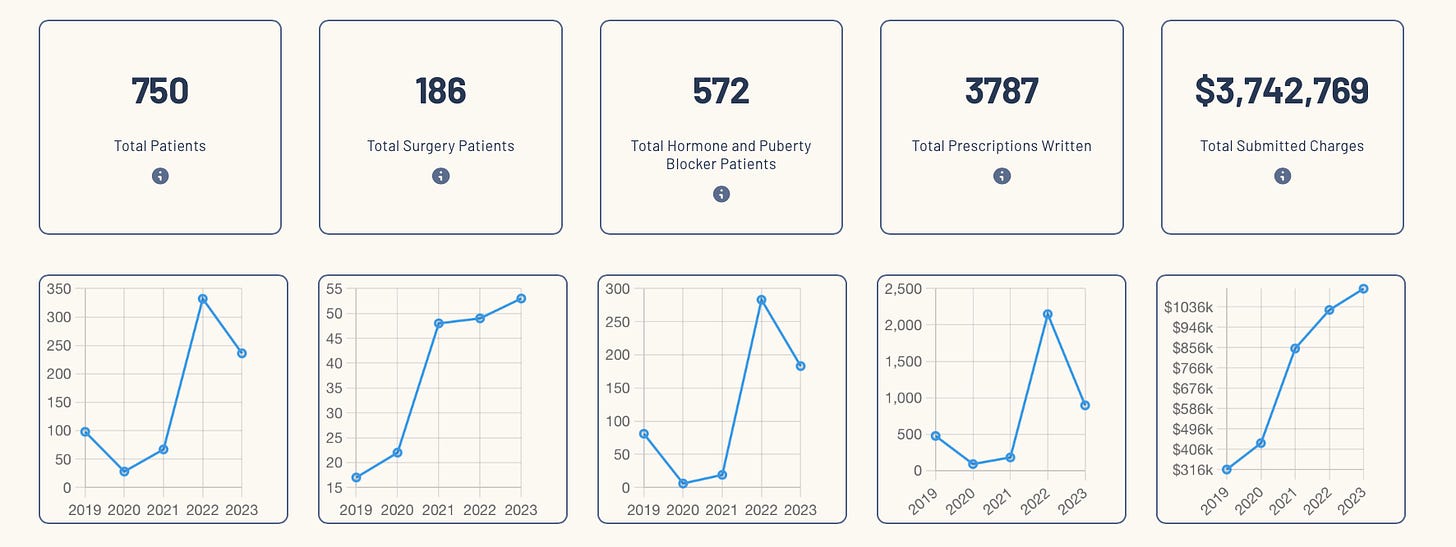
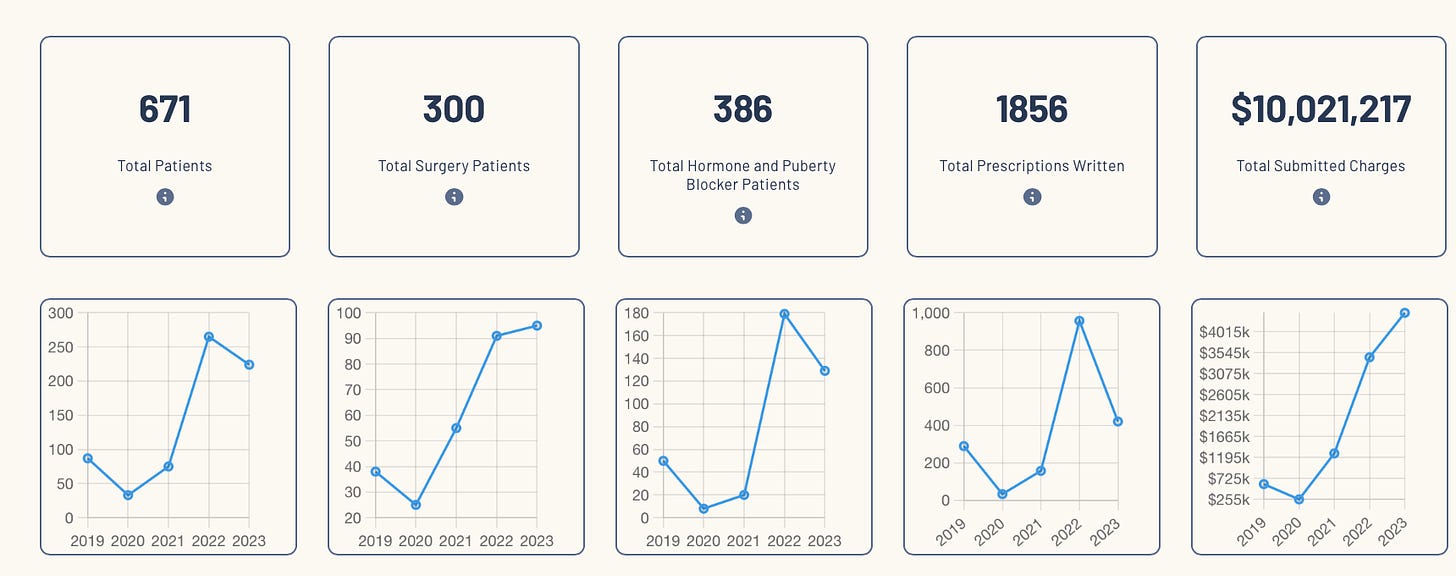
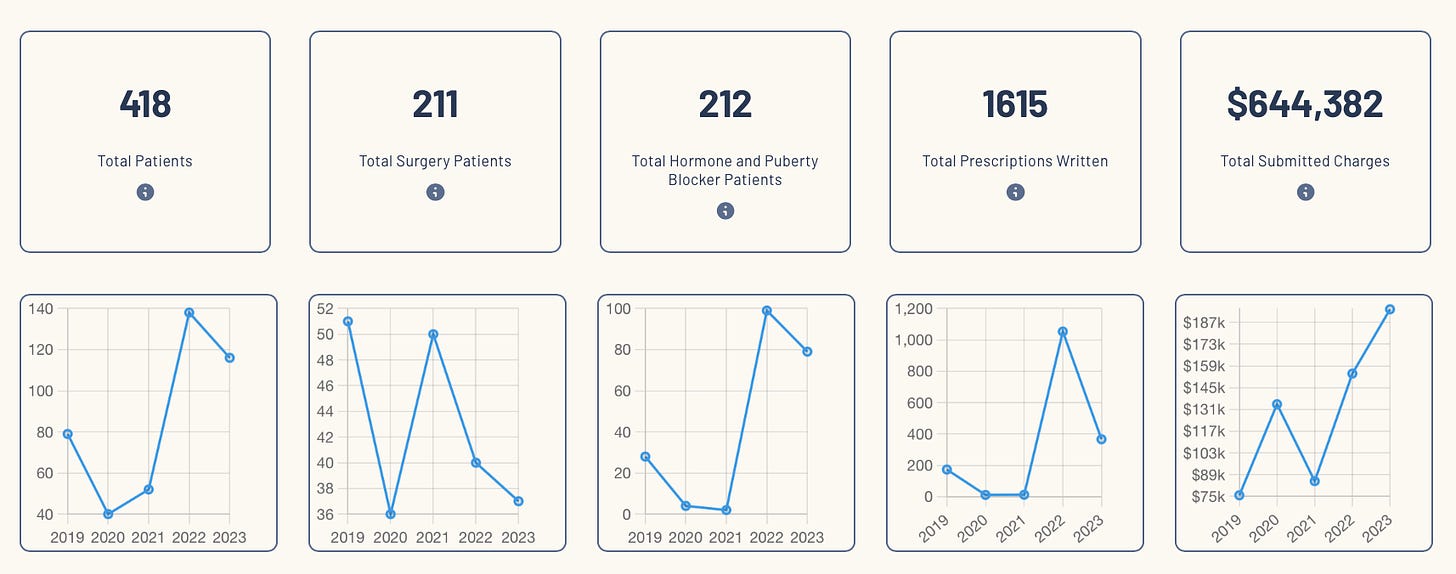
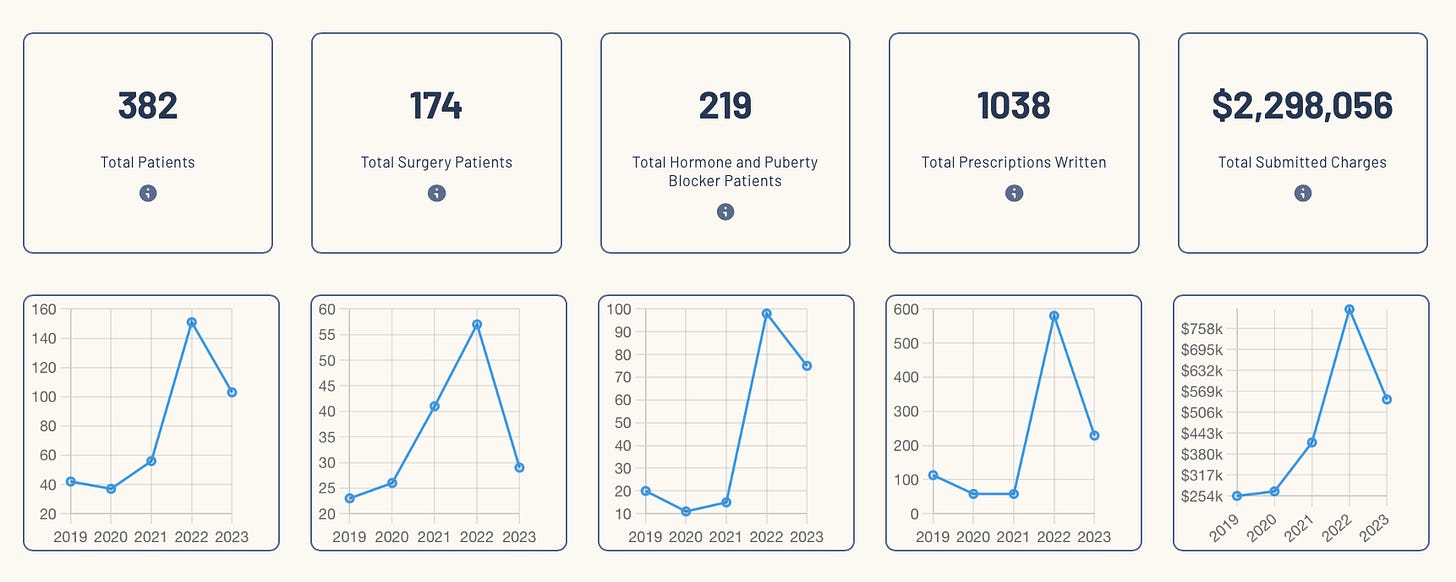
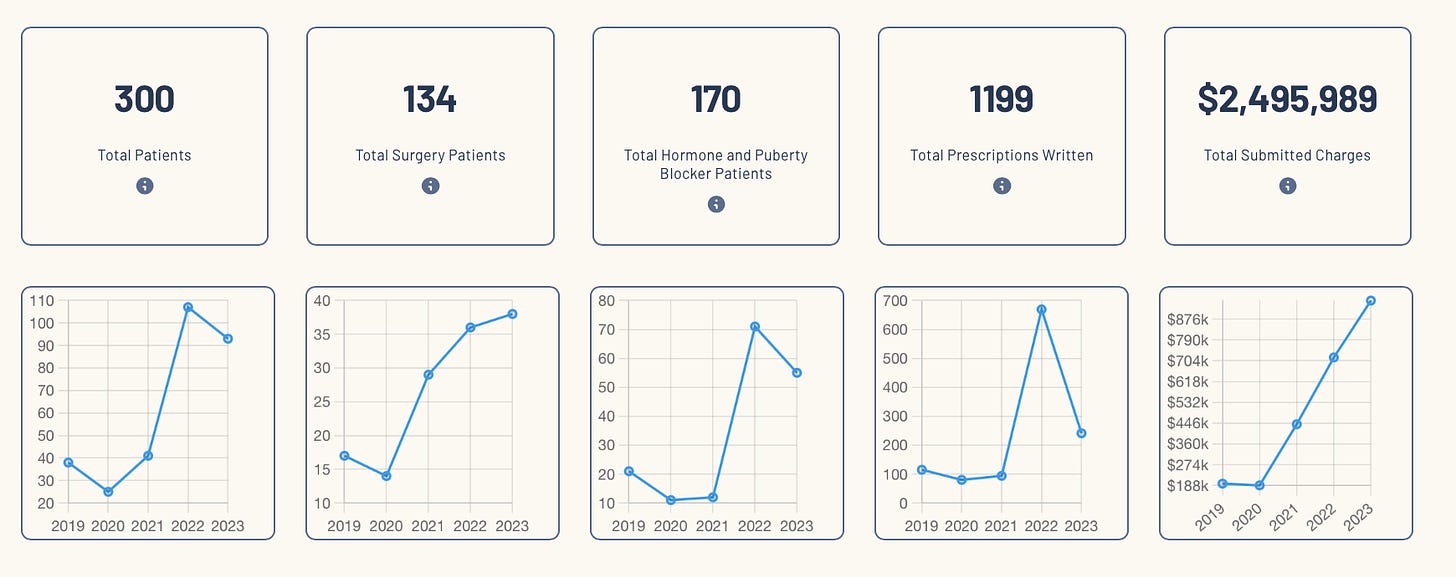
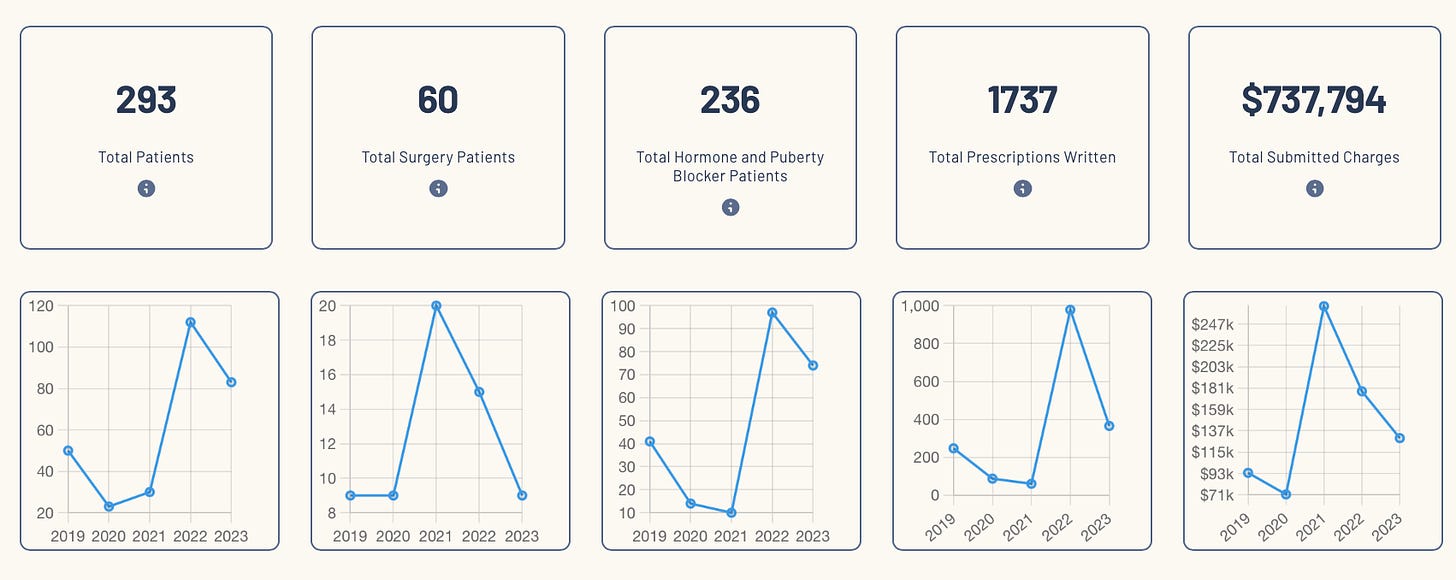
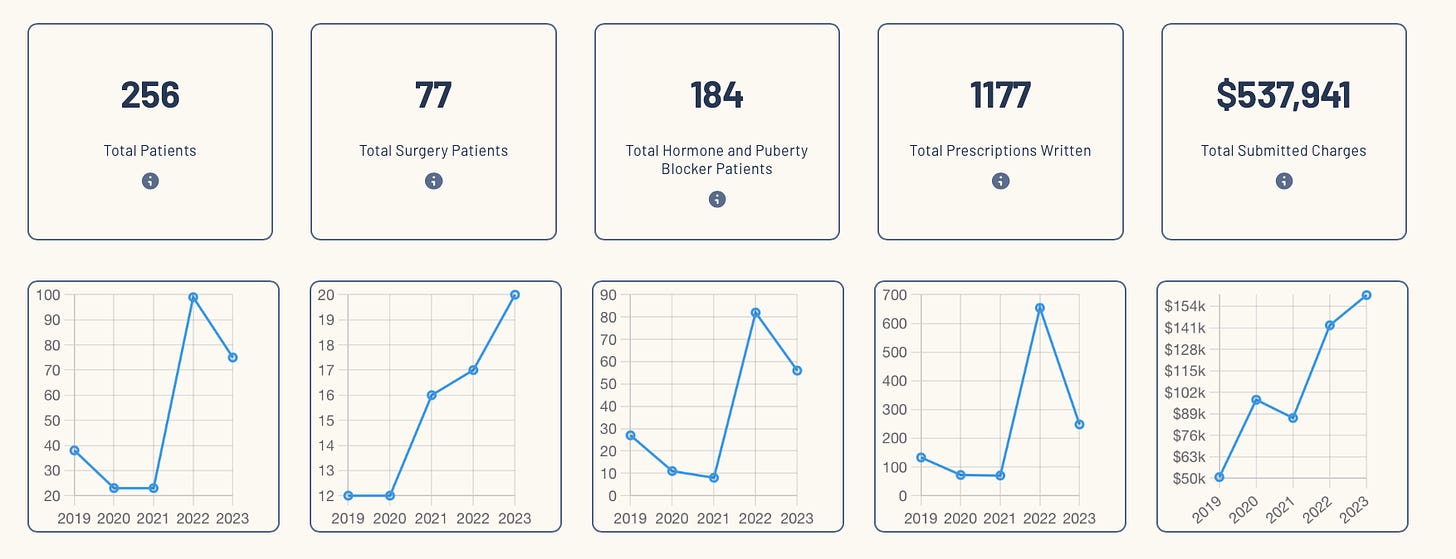
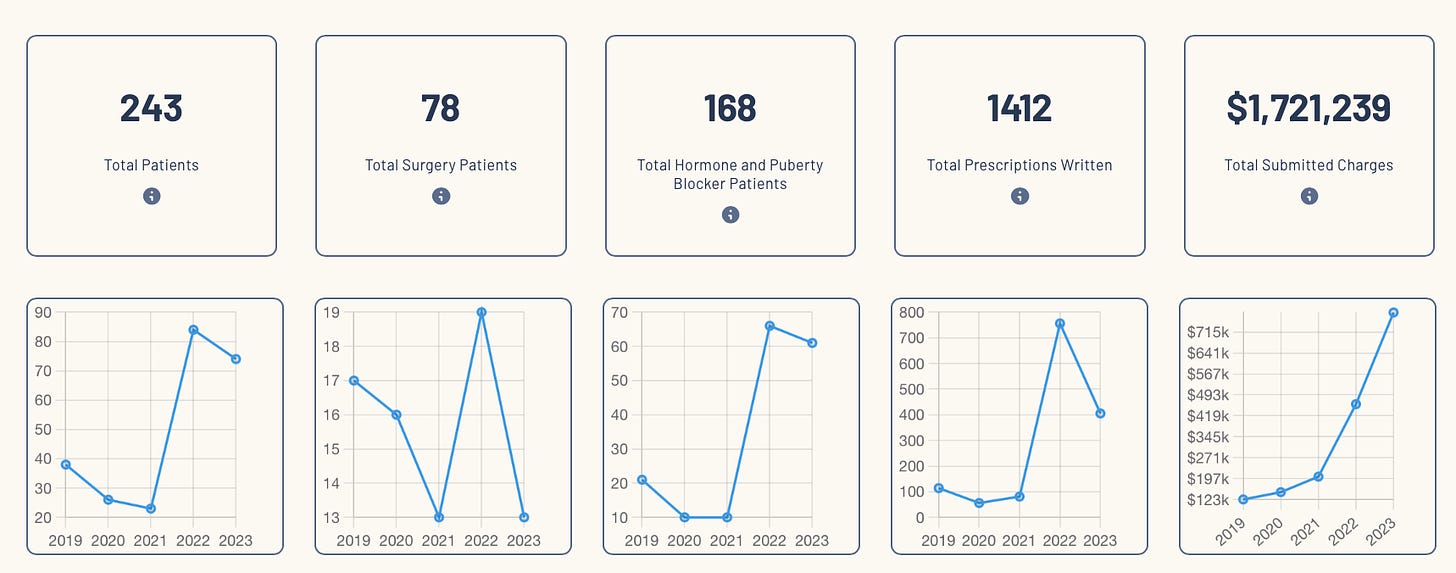
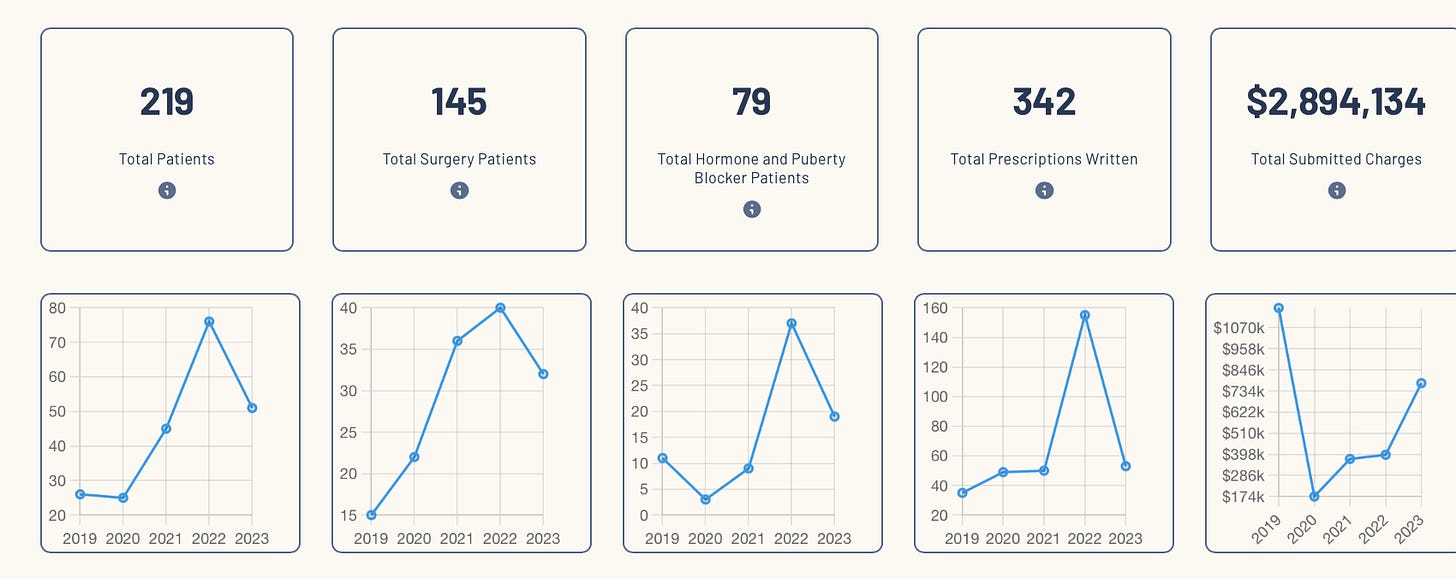
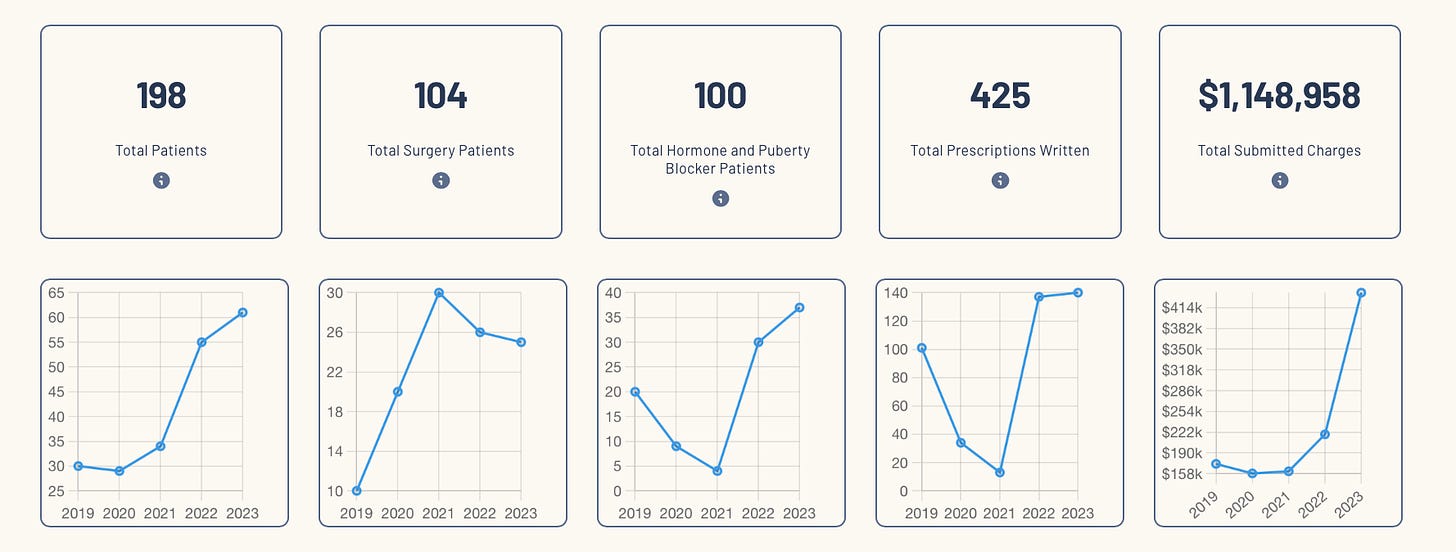
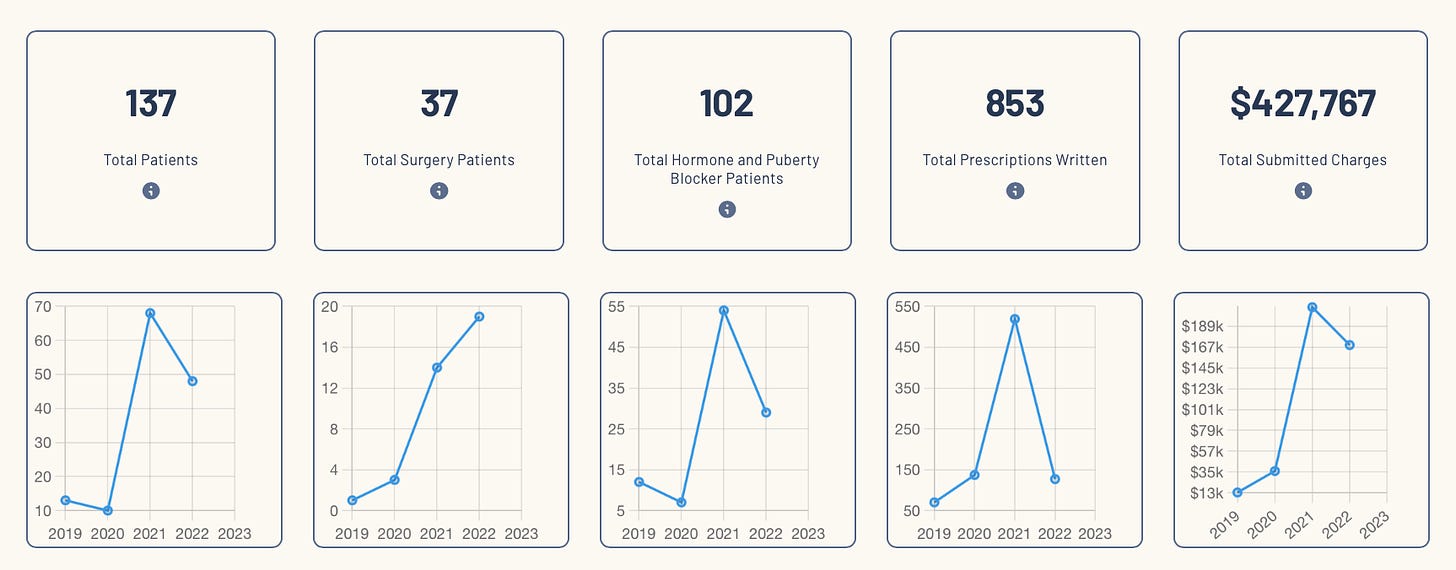
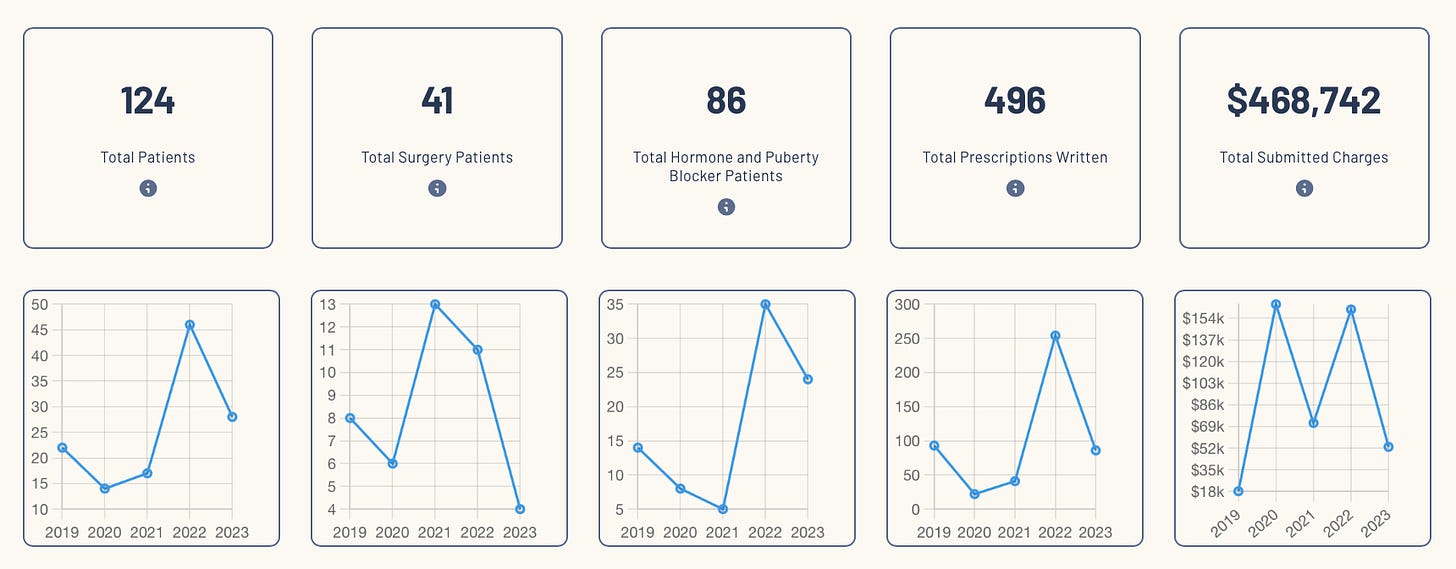
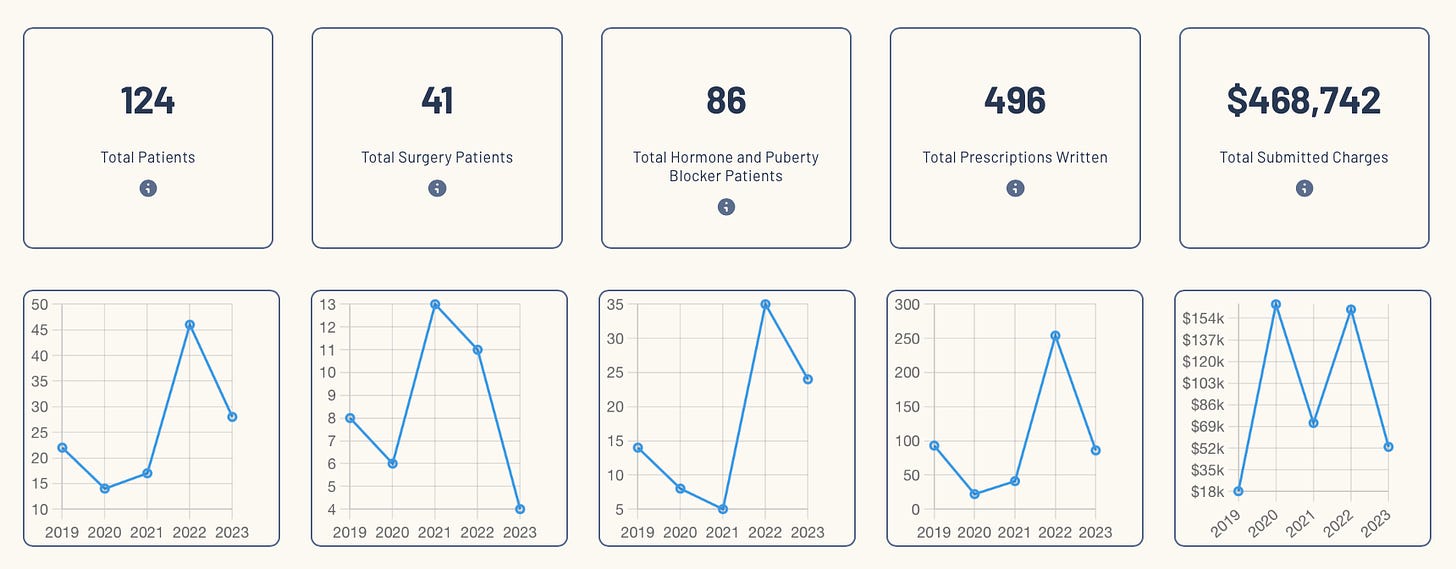
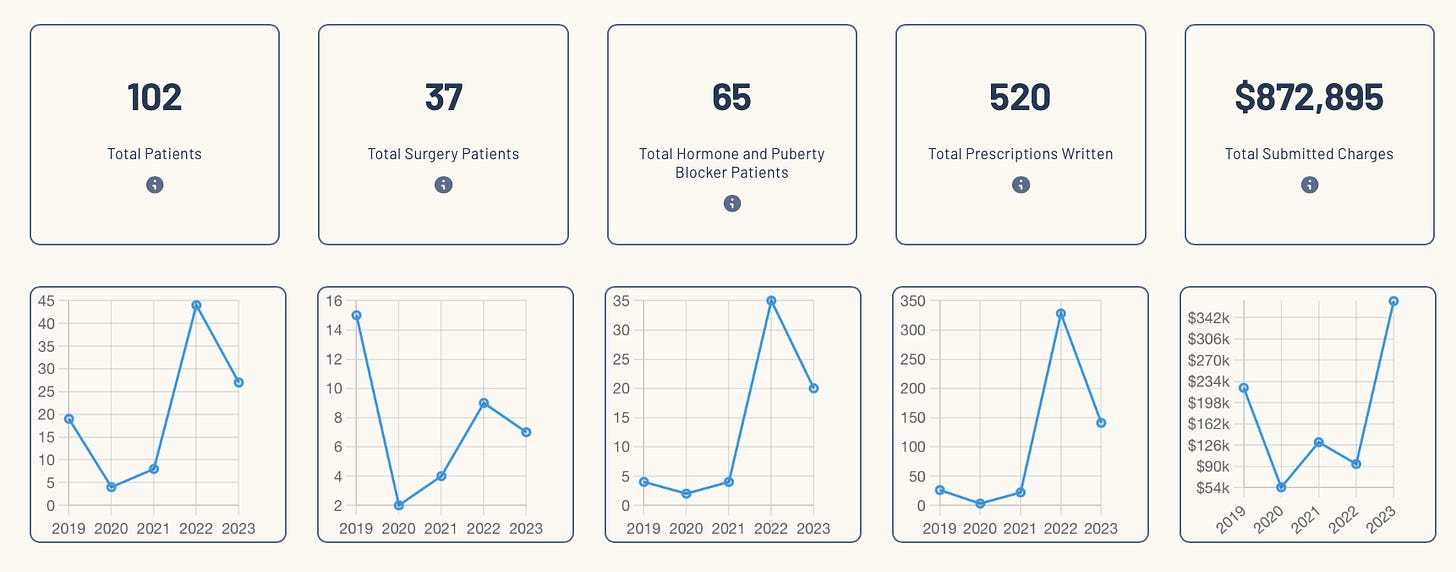
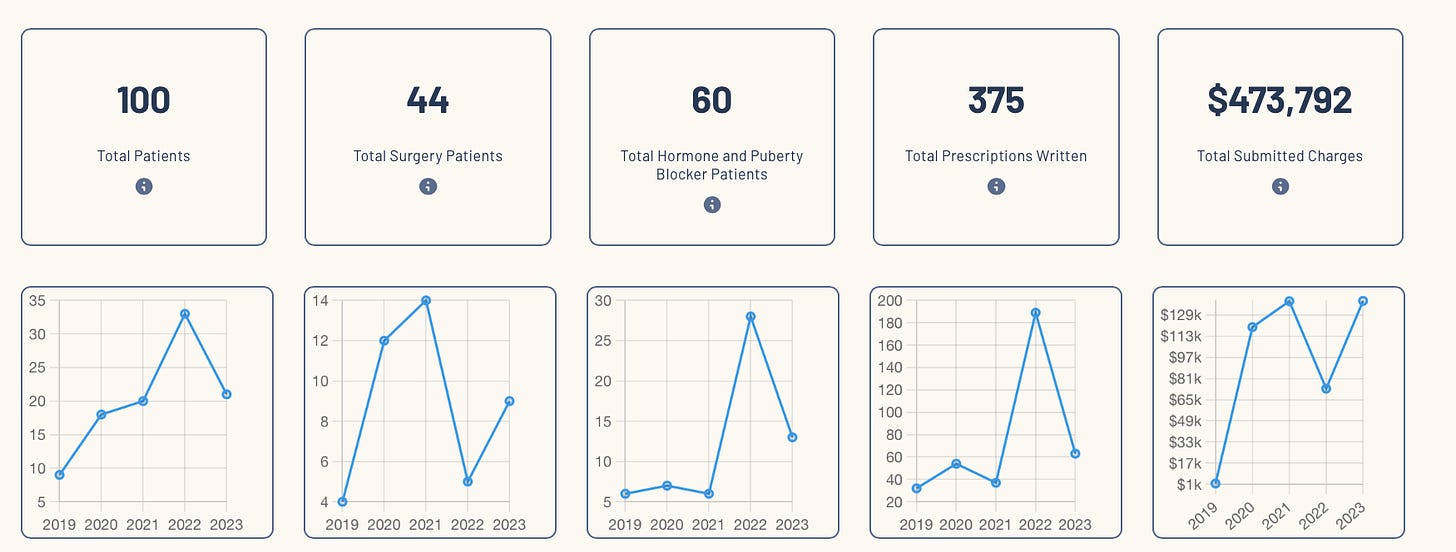
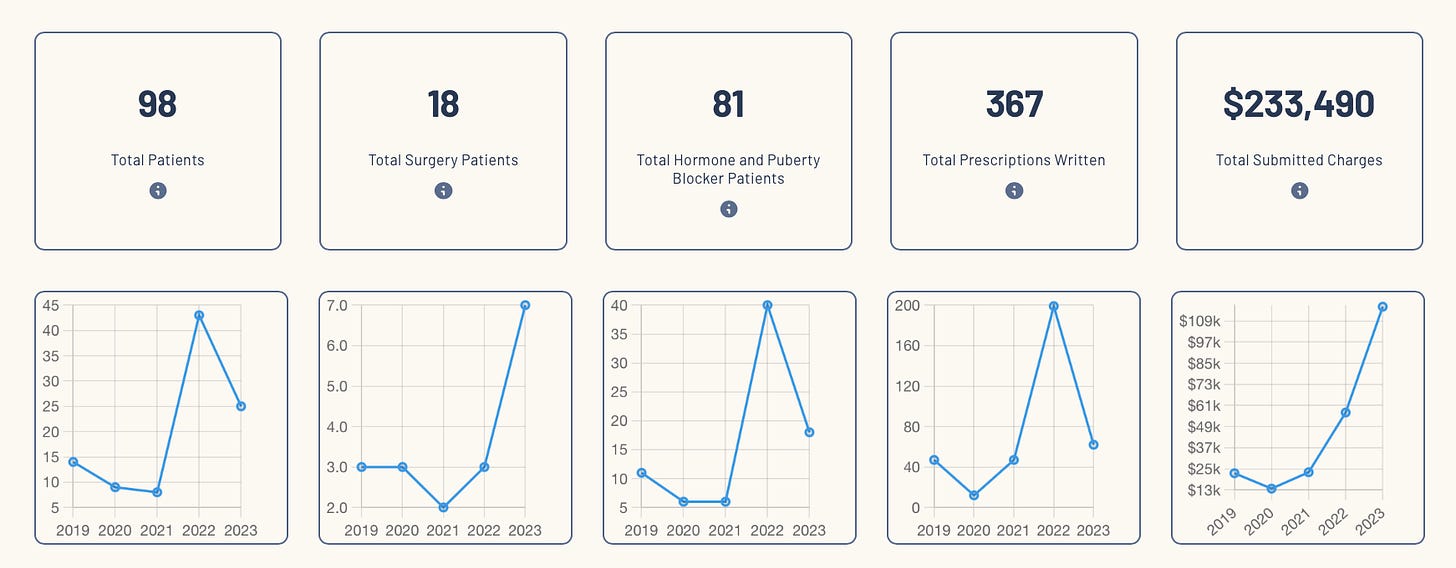
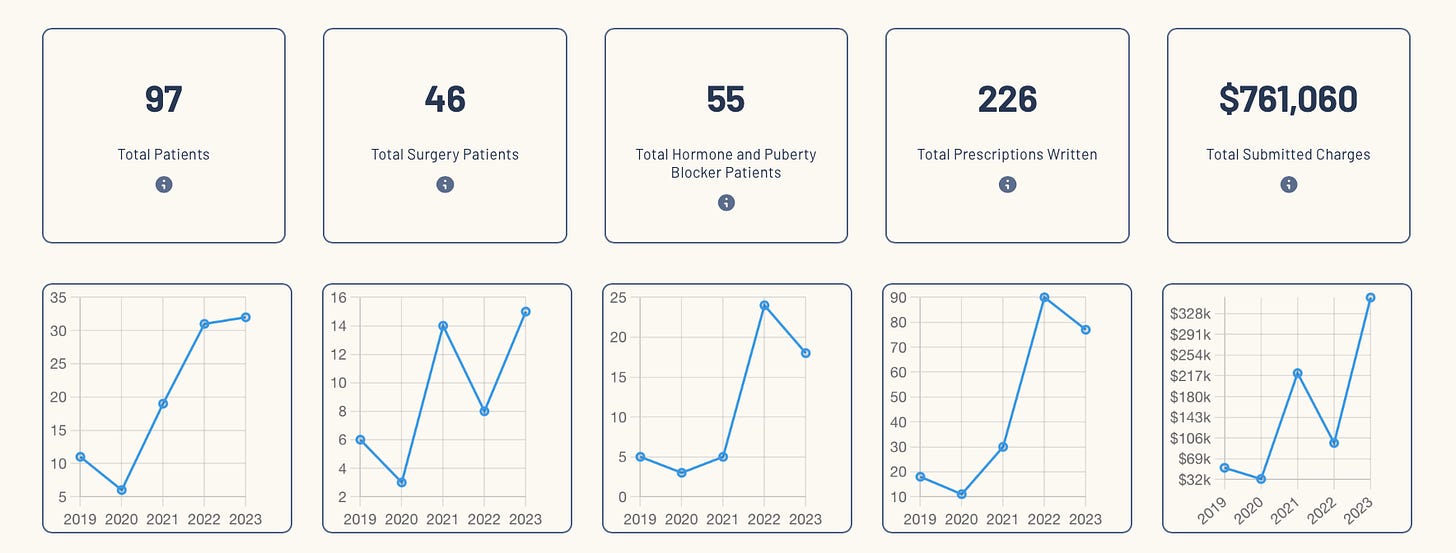
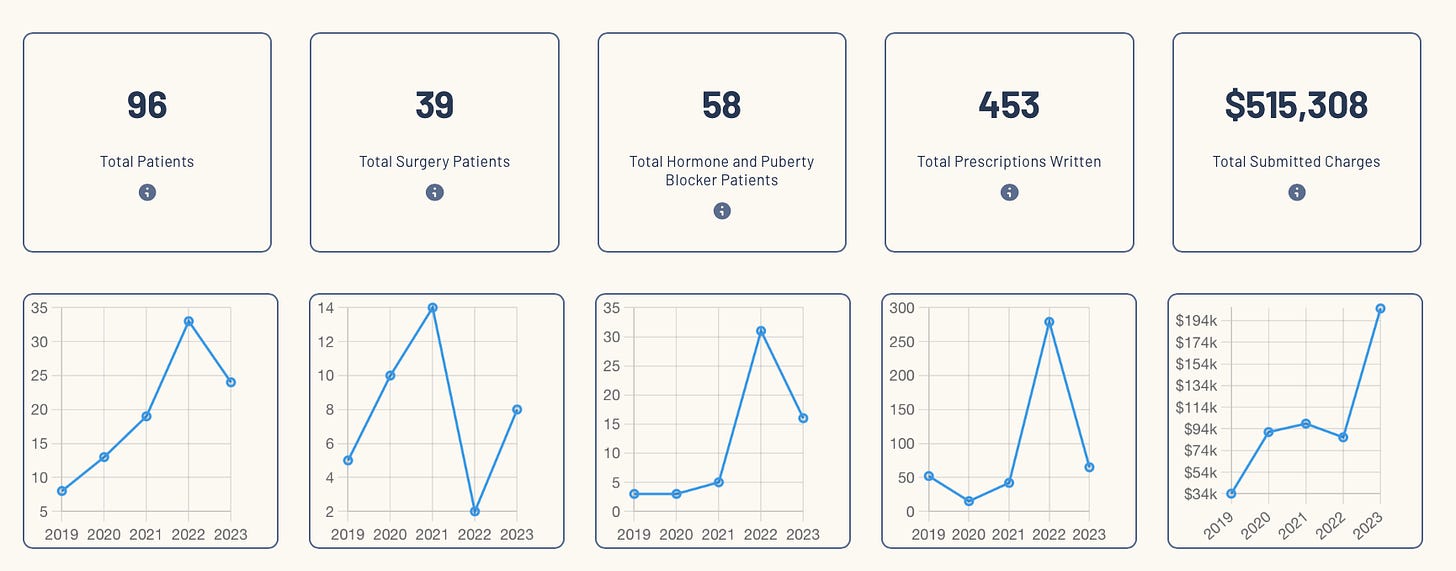
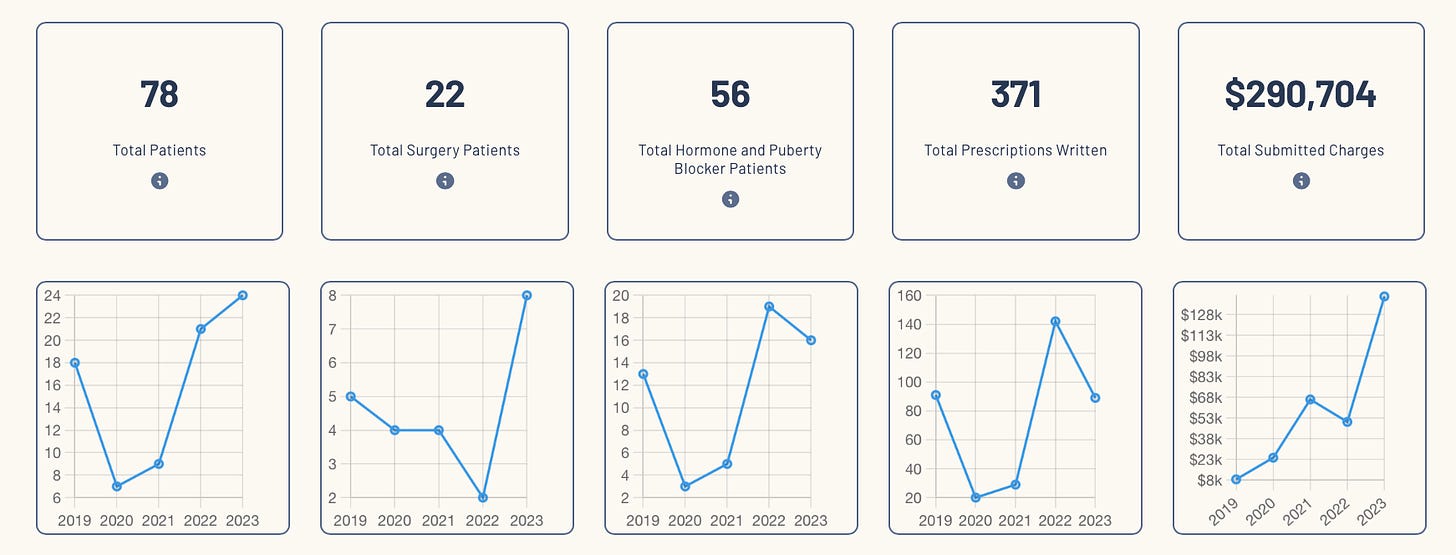
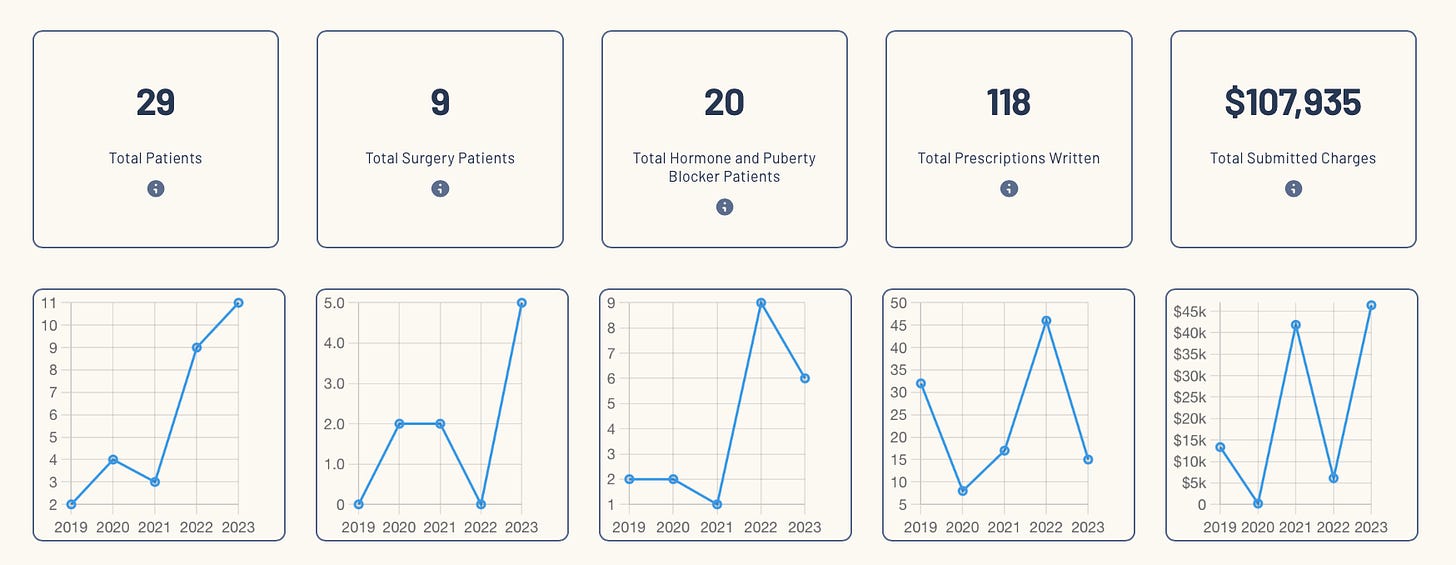
Thanks for this good news, Ben. 1 correction and 1 question: under your heading A Comparison of the States, the dates read 2019-2013, when I'm sure it should be 2019-2023. My question is: do you know whether DNH records insertion of puberty-blocker port (if that's the word) as a surgery?
Thank you!
Maybe the prescribing clinicians have noticed that these drugs are off label - I believe that means the prescriber rather than the drug company is responsible for any harm that results. (If I'm wrong, please tell me and I'll remove this!)